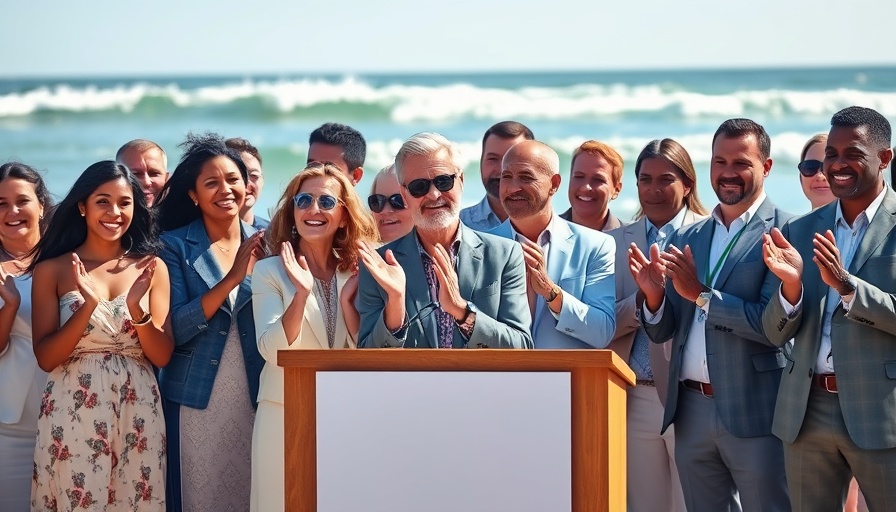
Engardio's Recall: A Crucial Test for San Francisco's Leadership
The upcoming recall election for Sunset District Supervisor Joel Engardio is more than a local political event; it's a signal of the frustrations permeating San Francisco politics. Scheduled for September, the recall seems to reveal deeper rifts within the community, particularly in a time when city officials are increasingly scrutinized over their decisions.
The Context of the Recall Election
Engardio's challenges stem from his controversial support for Proposition K, which aimed to close the Great Highway to create a safer environment for pedestrians and cyclists. While this move was aimed at benefiting public safety, the reality is that many residents of District 4 opposed it. Approximately 63% of voters in the district rejected the proposition, a significant indicator of how Engardio's decisions are being received by the electorate.
When Engardio narrowly won against previous Supervisor Gordon Mar by just 469 votes, he relied heavily on the conservative precincts that now appear discontented. These areas, which contributed to his win, are particularly vocal in their criticisms, highlighting how a single vote or policy can shift the entire political landscape.
Electoral Dynamics: A Challenging Landscape
The nature of recall elections poses unique challenges. Unlike a standard election, a recall is a direct confrontation against the incumbent, allowing little room for error in navigating voter sentiments. Polling data shows that while Engardio's supporters believe there is hope, the overall sentiment leans towards a significant challenge. The recall ballots are set to be mailed out on August 18, coinciding with major community events like Outside Lands—potentially exacerbating traffic issues and public frustration against him.
Engardio's Political Vulnerability
While Engardio may have supporters who wish to keep him in office, the record shows that discontent is brewing in the precincts that were once his core supporters. To turn the tide, he needs to address directly the grievances stemming from the impact of his policies—particularly traffic diversions that have affected daily life in the Sunset District.
Community Dynamics and Political Sentiment
This recall election not only tests Engardio's political mettle but also serves as a bellwether for other elected officials within San Francisco. As public dissatisfaction with various policies heightens, city leaders must adapt and respond quickly. Those who ignore local sentiments may find themselves facing similar repercussions in the future.
What This Means for San Francisco Politics
In light of this political climate, the upcoming recall may have implications that stretch well beyond District 4. Engardio's battle could set a precedent for how elected officials engage with their constituents, and how effectively they can respond to community concerns. A defeat could echo warnings across local political corridors, signaling that public discontent can swiftly translate into electoral consequences.
Conclusion: What Lies Ahead?
As the recall election approaches, voters in District 4 must weigh their options carefully. The outcome could persuade other city officials to reevaluate their positions and strategies in governance. In a city well-known for its progressive policies, understanding community dynamics becomes vital for future political survival. Whether Engardio can weather this recall storm will depend on his ability to address the concerns of his constituents head-on, reshaping the political dialogue in a city that demands accountability from its leaders.
This evolving situation reminds us of the broader implications of local governance and public sentiment. Engardio’s struggle is a cautionary tale that may resonate with elected officials across the nation who face community backlash.
 Add Row
Add Row  Add
Add 




Write A Comment